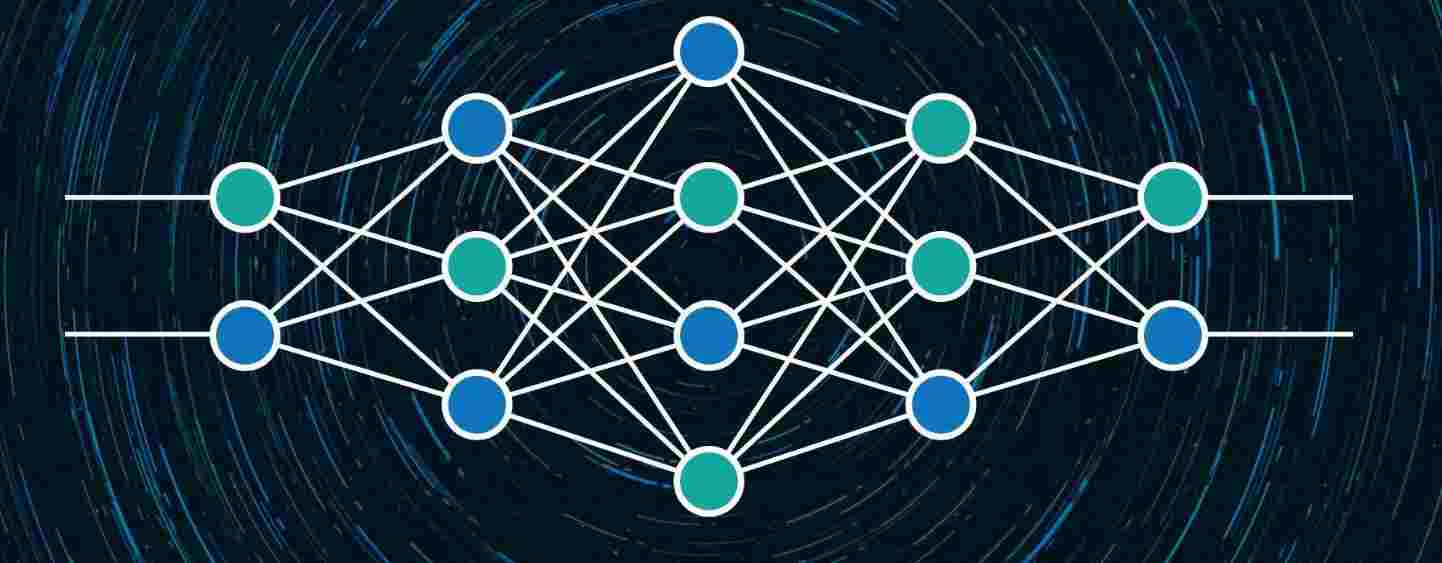Key educational trends to monitor in 2024
Published 03-01-2024
17750

Key educational trends to monitor in 2024
What are the key educational trends in 2024? In 2024, we find ourselves dangling on the edge of a technological revolution that is projected to transform about every facet of human existence, from how we live and work to how we interact with one another. The magnitude, breadth and complexities associated with this impending transformation are unprecedented in our history. In as much as the exact direction that this revolution will take remains uncertain, one thing is certainly clear; a comprehensive and cohesive response is necessary, hence the need for all global stakeholders to get themselves involved, be it the governmental and private entities or academic institutions and civil society.
Historically, each industrial revolution has left a significant mark on society. For instance, the First Industrial Revolution used water and steam power to mechanize production whereas the Second ushered in mass production through the utilization of electric power. On the other hand, the Third Revolution automated production processes with the emergence of electronics and information technology. Currently, the Fourth Industrial Revolution is taking place. It is leveraging on the very foundations of its predecessors. As a result, the digital upheaval that has been underway since the mid-20th century is epitomizing. This latest revolution is marked by the convergence of technologies, that are blurring the boundaries between physical, digital and biological worlds.
As a consequence, society and the professional landscape are undergoing rapid changes. Education, notably, is perhaps among the sectors that are being transformed significantly by the changes. There are various emerging issues and trends in the educational sector that the stakeholders must vigilantly monitor in 2024. This is because educators must remain updated with the latest developments, innovative pedagogical techniques as well as influential factors shaping the classroom learning environment in order to engage students effectively. Failure to assimilate the trends means that the educators will not be able to cultivate dynamic and impactful educational settings.
Therefore, teachers must equip themselves with a profound understanding of the most pivotal educational trends of 2024 in anticipation of the imminent advancements in education. This proactive approach will ensure that educators are well-equipped to navigate the evolving educational landscape well, hence exploiting the emerging technologies and methodologies to foster enriched learning experiences for their students.
Key educational trends: Technology in teaching and learning
The intersection of technology and teaching or instruction has become more pronounced than ever before in education. Looking at 2024 and beyond, technological trends in teaching and learning such as gamification, blockchain and artificial intelligence (AI) are projected to redefine the educational experience.
Over the past two decades, technology has woven itself into the fabric of society seamlessly, leading to a series of notable transformations in the various sectors. One of these sectors is education. In 2024, EHL Hospitality Business School stated that this integration will reach new heights, if past figures are anything to go by. The global e-learning market soared from $245.5 billion in 2022 to an estimated $278 billion in 2023, with a compounded annual growth rate (CAGR) exceeding 13%. Going with this trend, this figure is expected to skyrocket to $462.6 billion by 2027, underlining the increasing significance of remote and online learning in expanding access to education globally.
Gamification is revolutionizing engagement and learning
Gamification emerges as a pivotal tool in modern education, leveraging elements of game design to enhance student engagement and learning outcomes. Research indicates that gamification triggers dopamine release in the brain, heightening enjoyment and incentivizing participation. As such, educators foster a dynamic learning environment that promotes problem-solving and real-world application of concepts by incorporating points, rewards and leaderboards.
BlockChain is ensuring security and credential verification
In the educational sphere, blockchain technology emerges as a game-changer, offering a decentralized ledger system that ensures security and transparency in credential verification and academic record keeping. Grand View Research noted that blockchain-based solutions promise to streamline processes, mitigate fraud and enhance the credibility of certifications, especially with the global blockchain technology market being expected to surge at an annual rate of 85.9% from 2022 to 2030.
Personalizing learning and enhancing efficiency with Artificial Intelligence
Artificial intelligence (AI) stands at the forefront of educational innovation, empowering educators with tools to personalize learning experiences and streamline administrative tasks. Institutions are increasingly leveraging AI-powered solutions for grading assessments, delivering tailored lessons and facilitating information retrieval, particularly now that AI reached a staggering $3.68 billion in 2023. Moreover, AI-driven technologies pave the way for lucrative career pathways in robotics engineering, machine learning engineering and data science, hence underscoring the importance of equipping students with requisite skills for the future workforce.
Read our blog posts on: Top AI tools for essay, assignment and research, and Other AI tools worthy looking into
Adapting to technological advancements by seizing opportunities and navigating challenges
In as much as technological advancements hold immense promise for educational enhancement, educators must navigate challenges stemming from varying levels of technological adoption and resistance to change. Embracing professional development opportunities in AI, data science and other emerging fields equips educators with the requisite knowledge and skills to adapt curricula effectively, hence ensuring alignment with evolving educational paradigms.
Realizing the potential of education via consultancy and training
For educational stakeholders such as schools, governments and investors, staying updated with the technological trends is paramount. Literary Owls’ consultancy services provide tailored solutions to case study, research, essay, assignment and dissertations, among other academic writing tasks, by harnessing the power of technological innovations to foster educational excellence and prepare students for success in the digital age.
As we project the course for education in 2024 and beyond, technological trends in teaching and learning offer unparalleled opportunities that can transform educational dynamics, foster student engagement and enhance learning outcomes. We can pave the way for a future where education goes beyond limits and empowers learners to thrive in an ever-evolving world by embracing innovation and leveraging cutting-edge technologies.
The soft skills of entrepreneurship, public speaking and leadership for success
The demand for soft skills such as critical thinking, problem solving, people management and creativity has reached unprecedented heights in the current rapidly evolving workplace landscape. Employers actively seek out emerging professionals who possess the confidence and the ability to navigate complex challenges, make informed decisions and present with commendable leadership qualities. As such, educational institutions must prioritize soft skills training to equip students with the essential competencies needed for their future careers. This comprehensive approach not only enhances students' employability but also prepares them to thrive in competitive and dynamic professional environments.
However, the shift towards online learning presents a unique set of challenges for educators. This is because balancing screen time with fostering face-to-face interactions is crucial in order to nurture soft skill development in an effective manner. Educators must employ innovative strategies to facilitate collaborative learning experiences that not only go beyond the digital barriers but also cultivate meaningful interpersonal connections. Institutions that pioneer effective methodologies for cultivating soft skills stand to gain a significant competitive advantage in the higher education landscape. These institutions create immersive learning environments that empower students to develop and refine essential soft skills by leveraging diverse formats, such as Virtual Reality (VR) simulations, experiential workshops and interactive seminars.
Entrepreneurship skills to cultivate an innovative mindset
Entrepreneurship encompasses the spirit of innovation, resilience and adaptability. Educational institutions empower future leaders to identify opportunities, think creatively and navigate ambiguity with confidence by instilling an entrepreneurial mindset in students. Students gain practical insights into entrepreneurial ventures through experiential learning initiatives, such as business simulations, startup incubators and mentorship programs. These hone their problem-solving abilities and foster a spirit of innovation.
Public speaking skills for confidence and clear communication
Effective communication lies at the heart of successful leadership. Public speaking skills enable individuals to articulate ideas persuasively, inspire others and command attention in diverse professional settings. Educational institutions can cultivate public speaking proficiency through immersive workshops, speech competitions, and presentation assessments. Institutions empower them to become compelling and influential communicators in their respective fields by providing students with opportunities to refine their communication skills.
Leadership skills to nurture visionary leaders
Strong leadership is characterized by vision, integrity and the ability to inspire and motivate others towards a common goal. Educational institutions nurture the next generation of visionary leaders through targeted leadership development programs. These initiatives encompass experiential learning exercises, leadership seminars and mentorship opportunities, hence enabling students to cultivate self-awareness, empathy and effective decision-making skills. Institutions empower students to drive positive change and make a lasting impact in their communities and industries by fostering a culture of leadership excellence.
In summary, soft skills training is essential for preparing students to excel in the current dynamic and competitive professional arena. Educational institutions can empower students to navigate complex challenges, communicate effectively and lead with confidence and integrity by prioritizing entrepreneurship, public speaking and leadership skills development. As institutions embrace innovative pedagogical approaches and foster a culture of lifelong learning, they position their students for success in both the local and global marketplaces.
Dealing with decreasing attention spans with the Nano learning trend
Individuals are bombarded with a constant influx of information from various sources such as games, movies, news stories and videos in today's fast-paced digital era. This continuous stimulation poses a significant challenge to maintaining focus on a single task for a long period. Due to this challenge, the Nano Learning trend has emerged as a popular approach for addressing the decreasing attention spans effectively. Nano learning, by description, is whereby complex topics are broken down into bite-sized, easily digestible pieces of information. Learners can absorb and retain information more effectively when the content is presented in small increments. This is effective in avoiding the overwhelming feeling that often accompanies consuming large volumes of advanced material at once.
Writing for the global media brand TIME, Kevin McSpadden highlighted a study conducted by Microsoft between 2000 and 2015 that revealed a concerning trend; attention spans decreased by 4 seconds, dropping from 12 seconds to just 8 seconds. This decline is largely attributed to the pervasive influence of technology and the constant stream of stimuli it offers. Moreover, the shifting landscape of attention spans provides valuable insights into generational differences. Millennials, who have grown up immersed in technology, exhibit distinct characteristics compared to previous generations such as Gen X and Boomers, at least according to Pew Research. Also, Millennials quick to disengage when faced with uninteresting material despite demonstrating the potential to maintain attention for longer periods when engaged by compelling content.
An article published by Sara Lebow in the Insider Intelligence’s online platform reported a study conducted by Yahoo and OMD Worldwide whose findings showed that Generation Z (often referred to as the TikTok generation) displayed an attention span of just 1.3 seconds. This is a stark contrast (with Millennials’, for instance) underscores the importance of creating captivating content tailored to the preferences of modern audiences. Content must incorporate captivating visuals, engaging dialogue and compelling storylines to capture and retain the attention of Millennials and Gen Z. These elements are paramount to holding the interest of these demographics, who prioritize narrative and visual appeal over other considerations.
The trends in attention spans, therefore, has significant implications for educators tasked with keeping students engaged in the classroom. Teachers must adapt their instructional methods to align with the preferences of Millennials and Gen Z by leveraging strong narratives, visual stimuli and principles of Nano learning. It is important to recognize that highly visual and engaging material has the potential to captivate modern students and sustain their attention. Educators can foster a supportive environment conducive to student growth and development by embracing interactive and challenging learning experiences.
In a nutshell, the Nano Learning trend offers a practical solution to counter the decreasing attention spans in today's digital age. As seen above, educators can create dynamic learning experiences that resonate with modern learners by leveraging bite-sized learning modules and incorporating engaging content. As attention spans continue to evolve, embracing innovative pedagogical approaches becomes increasingly imperative for fostering meaningful educational engagement and facilitating student success.
Student-led learning in the digital age
To this end, it is obvious that technological advancements have reshaped the dynamics of teacher-student interactions and transformed traditional classroom dynamics. Today's students have unprecedented access to information and possess the autonomy to explore the wide array of information and knowledge independently. As a result, the role of educators and teachers has shifted from being mere providers of information to facilitators of learning experiences that empower students to become self-directed learners. The transition towards student-centered learning present opportunities and challenges, in equal measure, for educators.
As teachers relinquish the role of the sole disseminator of knowledge, they are tasked with cultivating the aforementioned essential soft skills such as leadership, problem-solving and effective communication. Teachers, therefore, should embrace the facilitative approach in order to cultivate an environment that is conducive to collaborative learning in which students actively engage in dialogue, teamwork and knowledge co-construction.
 Central to the facilitative model of teaching is the concept of empowering students to take ownership of their learning journey. Teachers are able to instill a sense of agency and autonomy by guiding students in navigating the vast expanse of information available, hence igniting a passion for lifelong learning and critical inquiry. Nonetheless, navigating this paradigm shift presents challenges for educators accustomed to traditional teaching methods. Embracing a facilitative role requires teachers to not only cultivate a learner-centric mindset but also adapt their pedagogical practices to meet the diverse needs and learning styles of students. This necessitates a paradigm shift from teacher-centered instruction to student-centered facilitation, where educators act as mentors, guides and co-learners in the educational journey.
Central to the facilitative model of teaching is the concept of empowering students to take ownership of their learning journey. Teachers are able to instill a sense of agency and autonomy by guiding students in navigating the vast expanse of information available, hence igniting a passion for lifelong learning and critical inquiry. Nonetheless, navigating this paradigm shift presents challenges for educators accustomed to traditional teaching methods. Embracing a facilitative role requires teachers to not only cultivate a learner-centric mindset but also adapt their pedagogical practices to meet the diverse needs and learning styles of students. This necessitates a paradigm shift from teacher-centered instruction to student-centered facilitation, where educators act as mentors, guides and co-learners in the educational journey.
Moreover, the facilitative approach to teaching enables educators to receive immediate feedback on their teaching effectiveness. Teachers gain valuable insights into student comprehension, engagement levels and learning outcomes by actively engaging with students in the learning process. This real-time feedback loop empowers educators to tailor their instructional strategies, address student needs and continuously refine their teaching practices to optimize learning experiences.
Simply put, the transition from traditional teaching to facilitative learning models holds immense potential for both educators and students. Teachers not only foster a culture of collaborative inquiry and critical thinking but also nurture essential life skills such as self-directed learning, problem-solving and effective communication by embracing a facilitative role. Educators pave the way for a transformative educational experience that prepares students to thrive in the complexities of the 21st century workforce and society by prioritizing student development over knowledge delivery.
Embracing the lifelong learning trend to adapt to the fourth industrial revolution
Work and employment has been affected by each industrial revolution, from the First Industrial Revolution to the current Fourth. The current Industrial Revolution is marked by unprecedented technological advancements that is rapidly changing the nature of jobs and professional roles. As a matter of fact, it is estimated that this revolution could impact up to 50 percent of jobs, signaling the need for professionals to continually upskill and adapt to remain competitive in their respective fields.
Earning a degree is no longer the culmination of one's educational journey in the current dynamic and rapidly evolving professional environment, at least according to Jimmy Tristovski. Instead, it marks the beginning of a lifelong commitment to learning and self-development. Professionals must embrace a mindset of continuous learning by recognizing that the knowledge and skills acquired during their initial education may become obsolete over time. Staying relevant and thriving in the face of technological disruption requires one to have the ability to adapt and acquire new competencies.
Educational institutions play a pivotal role in fostering a culture of lifelong learning among their students, faculty and staff. Classrooms, therefore, must evolve to become incubators of self-learning skills by providing opportunities for students to cultivate the autonomy and initiative necessary to engage in ongoing education beyond the confines of traditional academic settings. Moreover, institutions that navigate the lifelong learning trend well have the opportunity to develop long lasting connections with their alumni. Schools can keep their former students updated with the latest industry developments and emerging trends by offering a diverse array of continuous learning courses and professional development programs. This not only creates a sense of loyalty and engagement among alumni but also positions educational institutions as indispensable hubs of ongoing learning and career advancement.
As technology continues to reshape society and redefine the professional landscape, educational institutions must proactively adapt to remain relevant and responsive to the evolving needs of both the students and professionals. This implies being updated on the technological advancements and industry trends. In so doing, the institutions can position themselves for sustained growth and success in an increasingly competitive educational landscape.
Summarily, the lifelong learning trend represents a paradigm shift in education, thus necessitating a fundamental re-evaluation of traditional notions of learning and professional development. Both individuals and institutions can thrive amidst the challenges and opportunities presented by the Fourth Industrial Revolution by embracing continuous learning and fostering a culture of innovation and adaptability. The ability to learn, unlearn and relearn will be the cornerstone of success in the ever-changing educational and professional landscape, especially as we navigate the complex modern world.
The role of academic help services like literary owls in navigating key educational trends
Let us be realistic: the current fast-paced and technologically driven academic environment presents a myriad of challenges to students as they strive to excel in their studies. The demands placed on students (such as keeping up with the latest technological trends in teaching and learning and mastering soft skills like entrepreneurship and public speaking) have never been greater. Academic help services like Literary Owls, in such as a context, play a crucial role in supporting students on their educational journey.
But how?
Key educational trends in teaching and learning
The traditional methods of teaching and learning are undergoing a significant transformation, especially with the rapid advancement of technology. Gamification, blockchain and artificial intelligence (AI), among other emerging technologies, are revolutionizing the way students access and engage with educational content. Academic help services like Literary Owls leverage these technological trends to provide students with innovative learning solutions tailored to their individual needs.
Soft skills training
Besides academic excellence, the current crop of students must possess a range of highly valued soft skills such as entrepreneurship, public speaking and leadership to succeed in the professional world. Academic help services like Literary Owls offer specialized training programs designed to enhance these critical skills, giving students a competitive edge in the job market.
Decreasing attention spans and the Nano learning trends
One of the challenges facing educators today is the decreasing attention spans of students, largely attributed to the constant influx of digital stimuli. The rise of the Nano learning trend, which breaks down complex topics into bite-sized pieces, is an effective response to this phenomenon. Academic help services such as Literary Owls recognize the importance of adapting to these changing learning preferences and offer tailored resources and support to help students stay focused and engaged.
Facilitating learning versus teaching
As the role of educators evolves from traditional teaching to facilitating learning, academic help services like Literary Owls play a vital role in providing personalized support and guidance to students. These services adopt a facilitative approach, thus empowering students to take ownership of their learning journey and develop the critical thinking and problem-solving skills needed for success in the modern world.
Life-long learning among the key educational trends
The concept of lifelong learning has never been more relevant, particularly in an era of constant innovation and disruption. Academic help services like Literary Owls recognize that learning does not stop after graduation and offer a range of resources and opportunities for continuous skill development. Students can stay ahead of the curve and adapt to the ever-changing demands of the academic and professional landscape by embracing the lifelong learning trend.
In conclusion, academic help services like Literary Owls play a pivotal role in supporting students as they navigate the complexities of today's evolving academic landscape marked by key educational trends. From harnessing the latest technological trends to fostering soft skills development and promoting lifelong learning, these services empower students to achieve their full potential and succeed in an increasingly competitive world.
How to submit your order at Literary Owls
Step 1
Begin by registering or signing up with us, much like you would on any other platform. Here at Literary Owls, we prioritize simplicity, requiring only your email address to create an account. During this process, provide project details and your own perspectives, which will guide our team of night owls in delivering scholarly writing consultancy tailored to your needs. We prefer a clear and engaging communication style, so please articulate your project requirements in plain language. Additionally, include any relevant outbound links for sources or pages you wish to be incorporated into your project.
Step 2
Enjoy the convenience of our flexible payment options at Literary Owls. We accept Visa, MasterCard, PayPal, and American Express, ensuring a seamless transaction process. Rest assured, there are no hidden charges or additional fees – you only pay for what you order. Payment is released to the selected night owl upon your satisfaction and approval. If the delivered work falls short of your expectations, our support team is readily available to address any concerns and facilitate a full refund. With Literary Owls, it is a risk-free opportunity with endless benefits!
Step 3
Once your order is submitted, our team of night owls will review it, and those confident in their ability to provide scholarly writing advisory will place their bids. You will have the freedom to choose the night owl you believe is best suited to assist you. Once selected, your chosen night owl will promptly commence work on your project. Moreover, you have the option to engage directly with your night owl to discuss any additional project details.
Step 4
Upon completion, you will receive your paper and have the opportunity to rate your writer. Your feedback, whether through a review of your experience or an assessment of the writer's personal and professional attributes, helps fellow scholars, researchers, and students make informed decisions.




